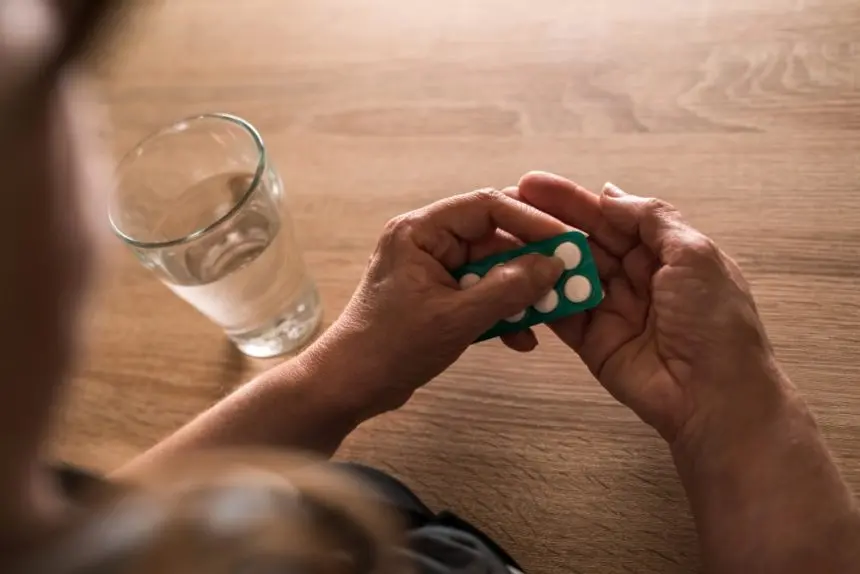- Home
- Medical news & Guidelines
- Anesthesiology
- Cardiology and CTVS
- Critical Care
- Dentistry
- Dermatology
- Diabetes and Endocrinology
- ENT
- Gastroenterology
- Medicine
- Nephrology
- Neurology
- Obstretics-Gynaecology
- Oncology
- Ophthalmology
- Orthopaedics
- Pediatrics-Neonatology
- Psychiatry
- Pulmonology
- Radiology
- Surgery
- Urology
- Laboratory Medicine
- Diet
- Nursing
- Paramedical
- Physiotherapy
- Health news
- Fact Check
- Bone Health Fact Check
- Brain Health Fact Check
- Cancer Related Fact Check
- Child Care Fact Check
- Dental and oral health fact check
- Diabetes and metabolic health fact check
- Diet and Nutrition Fact Check
- Eye and ENT Care Fact Check
- Fitness fact check
- Gut health fact check
- Heart health fact check
- Kidney health fact check
- Medical education fact check
- Men's health fact check
- Respiratory fact check
- Skin and hair care fact check
- Vaccine and Immunization fact check
- Women's health fact check
- AYUSH
- State News
- Andaman and Nicobar Islands
- Andhra Pradesh
- Arunachal Pradesh
- Assam
- Bihar
- Chandigarh
- Chattisgarh
- Dadra and Nagar Haveli
- Daman and Diu
- Delhi
- Goa
- Gujarat
- Haryana
- Himachal Pradesh
- Jammu & Kashmir
- Jharkhand
- Karnataka
- Kerala
- Ladakh
- Lakshadweep
- Madhya Pradesh
- Maharashtra
- Manipur
- Meghalaya
- Mizoram
- Nagaland
- Odisha
- Puducherry
- Punjab
- Rajasthan
- Sikkim
- Tamil Nadu
- Telangana
- Tripura
- Uttar Pradesh
- Uttrakhand
- West Bengal
- Medical Education
- Industry
Depression may be associated with lower likelihood of having children

Lower chances of having children and fewer children per woman and man who are treated for depression (secondary-care treated depression), says an article published in American Journal of Obstetrics and Gynecology.
The likelihood of having children may be decreased by depression, however the evidence is conflicting. There have only been a few prior population-based studies on the subject. In order to determine whether these associations differ for individuals with low, middle, and high educational levels, Kateryna Golovina and team conducted this study. The goal of the study was to investigate the relationships between depression and the likelihood of having children, the number of children, and the age at first birth.
All Finns born between 1960 and 1980 were included in a national register cohort study. Diagnoses for depression were found in the Care Register for Health Care. The three main outcomes—having biological children, having a certain number of biological children, and the age of the first birth—were gleaned from Statistics Finland's Population register and defined either at the conclusion of the follow-up in 2017 or the final year of existence or residence in Finland. Utilizing logistic regression analysis, Poisson regression analysis, and linear regression analysis, researchers looked at the relationship between depression and having children, the likelihood of having children, the number of children, and the age at first birth.
The key findings of the study were:
1. Secondary-care treated depression was linked to a decreased likelihood of having children and a lower number of children in both men and women.
2. Depression and slightly younger first birth age were associated.
3. There were dose-response relationships between depression severity and a lower likelihood of having children and a smaller number of children.
4. A reduced likelihood of having children and a smaller number of children were associated with earlier onset of depression.
5. Depression was linked to lower chances of having children and fewer kids among men and women in middle and high educational levels.
6. No connections were seen among men with little education.
7. Depression was linked to a higher likelihood of conception and a higher birth rate in women with low levels of education.
Reference:
Golovina, K., Elovainio, M., & Hakulinen, C. (2022). Association between depression and the likelihood of having children: a nationwide register study in Finland. In American Journal of Obstetrics and Gynecology. Elsevier BV.https://doi.org/10.1016/j.ajog.2022.10.016
Neuroscience Masters graduate
Jacinthlyn Sylvia, a Neuroscience Master's graduate from Chennai has worked extensively in deciphering the neurobiology of cognition and motor control in aging. She also has spread-out exposure to Neurosurgery from her Bachelor’s. She is currently involved in active Neuro-Oncology research. She is an upcoming neuroscientist with a fiery passion for writing. Her news cover at Medical Dialogues feature recent discoveries and updates from the healthcare and biomedical research fields. She can be reached at editorial@medicaldialogues.in
Dr Kamal Kant Kohli-MBBS, DTCD- a chest specialist with more than 30 years of practice and a flair for writing clinical articles, Dr Kamal Kant Kohli joined Medical Dialogues as a Chief Editor of Medical News. Besides writing articles, as an editor, he proofreads and verifies all the medical content published on Medical Dialogues including those coming from journals, studies,medical conferences,guidelines etc. Email: drkohli@medicaldialogues.in. Contact no. 011-43720751


